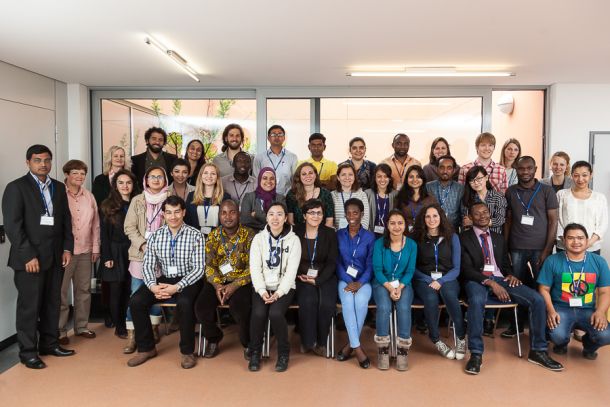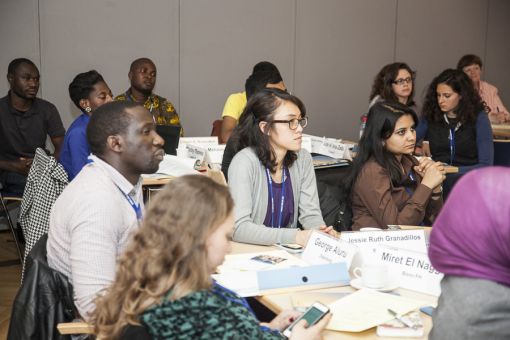Studying abroad expands knowledge, fosters intercultural understanding and builds character. Reintegrating into the working world is one of the biggest challenges of the return home.
The new scholarship holders from the development-related postgraduate courses have been in Germany since the 2013 winter term. In April 2014 they sent their elected representatives to take part in the Bonn Network Meeting to discuss a pressing – and soon-approaching – issue: reintegrating back home. Participants explored the potential challenges and problems that await once they return to their home countries. From the liveliness of the discussion, one thing was clear: Reintegration is on everyone’s mind.
Job search hurdles
It often takes time for the freshly-minted graduates to find a suitable job. Convincing potential employers that they are the right candidate for job because of their international experience and the specialist knowledge gained through their studies in Germany is not always easy. As Hend Saad El Din from Egypt reports, the job search is particularly difficult in less politically stable countries. She studies Economics of the Middle East in Marburg. “Wages are particularly low in my particular sector, and the revolution has made it generally more difficult to find a job.”
Despite their higher qualifications, the students are well aware that they will not land a managing position right away and are willing to be patient, knowing that they will have to make their way through rigid hierarchies. “My experience in Germany has taught me to tackle problems head on – to talk about them and to find solutions. This means involving administrative authorities and the government if necessary,” says Kiran Subedi, who studies Agricultural Economics at the University of Hohenheim. “I have a very clear vision of what I want to accomplish in my home country of Bhutan. But I also know it will take time.”
Not customary: Open culture of discussion
Yet another issue is the fact that discussion and critical discourse is not always welcome. Unlike in Germany and its universities, in many countries open and honest dialogue among colleagues is not customary. This does not dampen the spirit of the students, however. True to their mission as “change agents”, they plan to institute cultures of dialogue at their future places of work through seminars and other events. The graduates are also highly aware of the need to adjust their newly gained know-how and new technologies to the social and political needs of their countries.
As demonstrated during the Bonn Network Meeting, the scholarship holders all share the same goal of returning home and making a lasting contribution to sustainable development in their country. They all know that when it comes to development cooperation, international contacts are extremely important. That is why they have already begun building their networks of experts. “We come from different regions of the world and we all have different areas of expertise,” explains the International Horticulture student Emmanuel Ayipio from Ghana. “We can tackle the complex problems facing developing countries by working together.”
Impressions from the workshop in our image gallery on facebook
Network meeting 2013: Starting strong back at home and Facebook gallery







